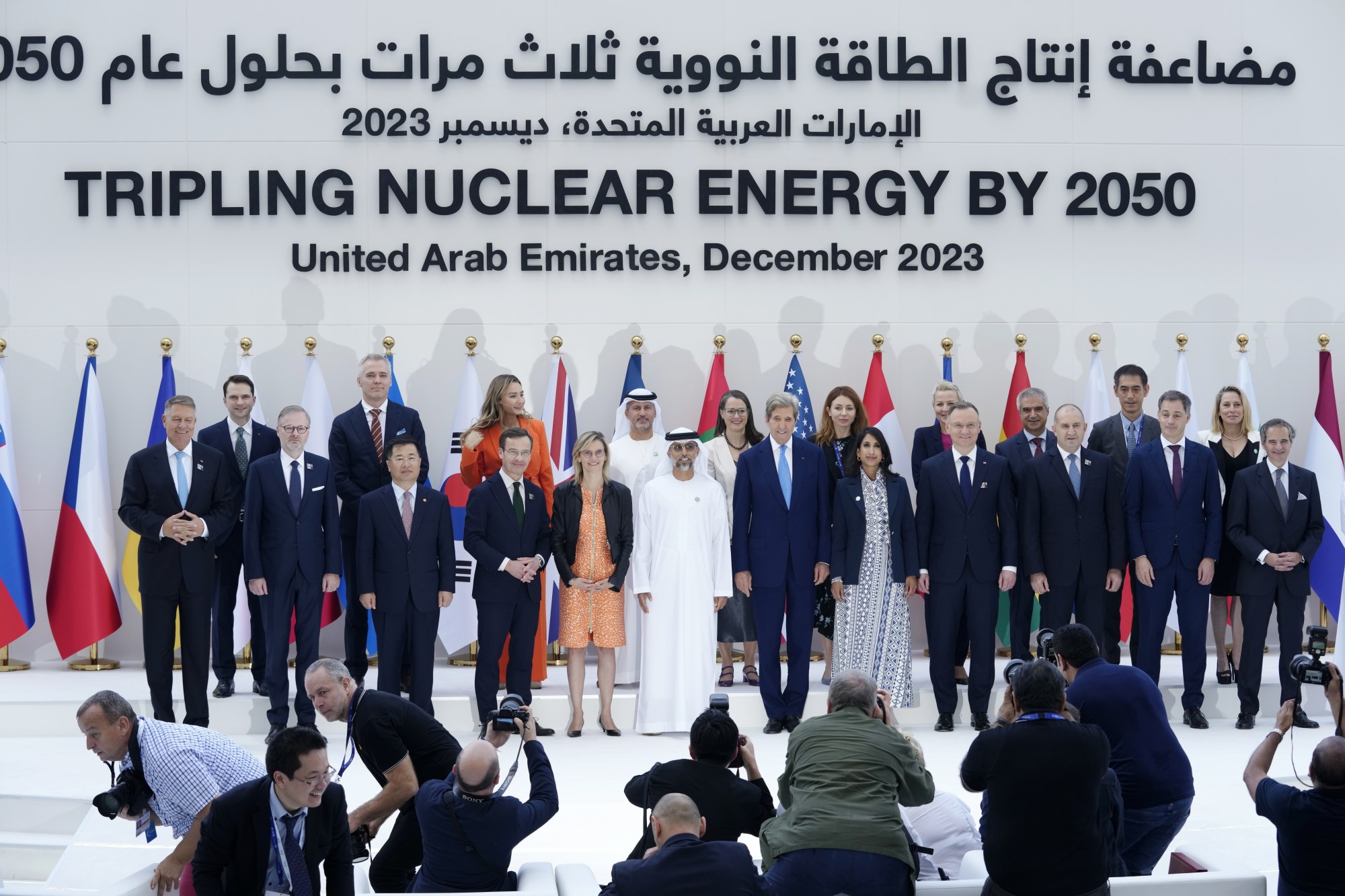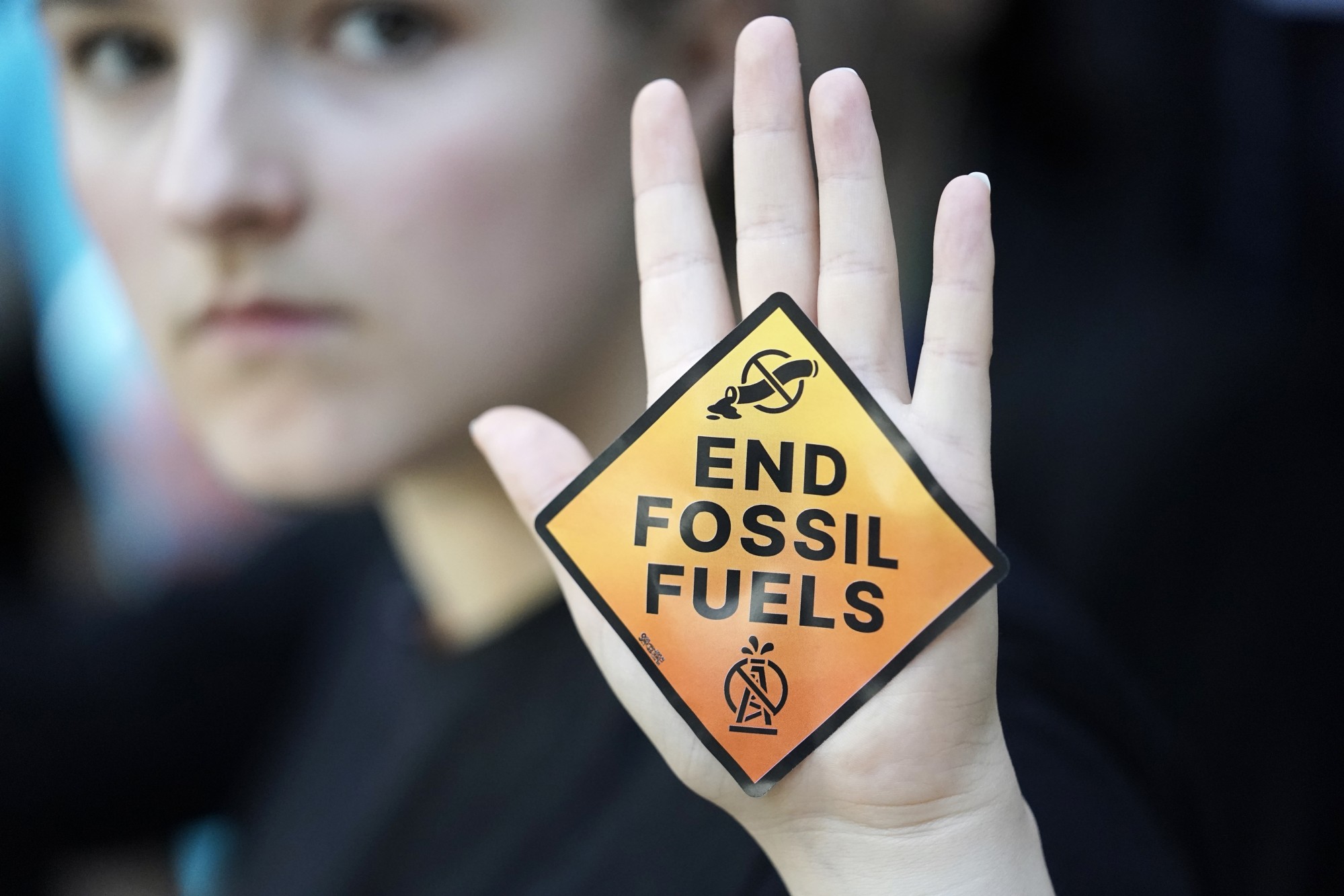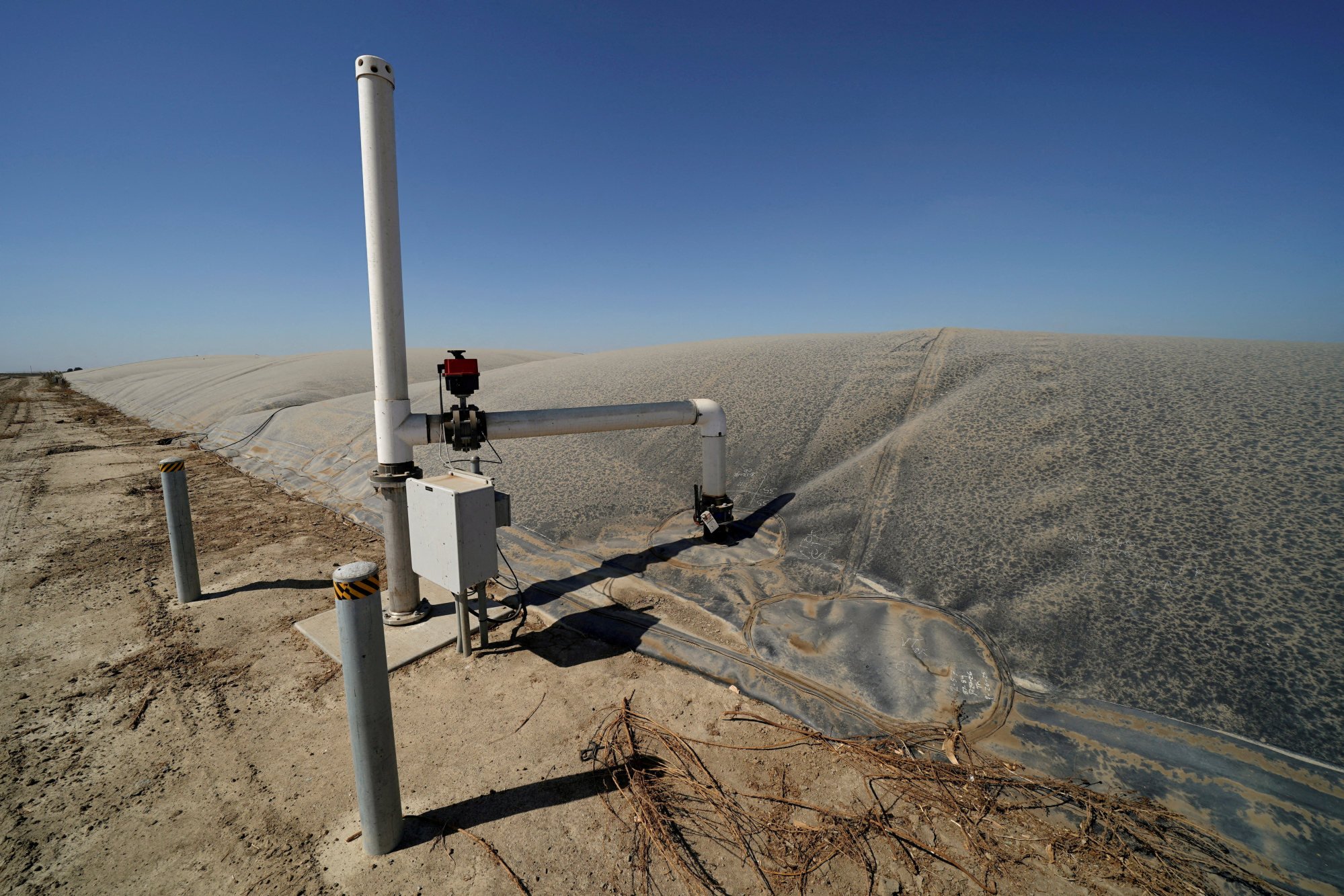United States leads call to triple nuclear power at Cop28
But more than 20 nations ranging from the US to Ghana, Japan and several European countries said in a declaration that it plays a “key role” in the global goal of achieving carbon neutrality by mid-century.
They called for the tripling of nuclear energy capacity by 2050 from 2020 levels.

“We are not making the argument to anybody that this is absolutely going to be a sweeping alternative to every other energy source,” US climate envoy John Kerry said at the Cop28 conference in Dubai.
“But we know because the science and the reality of facts and evidence tell us that you can’t get to net-zero 2050 without some nuclear,” he said.
The other signatories include Britain, France, South Korea, Ukraine and the United Arab Emirates, but nuclear powers Russia and China did not sign up.
“I want to reiterate that nuclear energy is clean energy. It must be repeated,” said French President Emmanuel Macron.
Environmental group 350.org said the Fukushima nuclear disaster in 2011 in Japan highlighted the dangers of atomic power.
“While we appreciate that the Biden administration is looking to invest in alternatives to fossil fuels, we don’t have time to waste on dangerous distractions like nuclear energy,” said its North American director Jeff Ordower.
Experts point to the fact that nuclear plants can take decades to go into service.
“Nuclear energy takes much longer than renewable energy to be operational,” 350.org added.
Asia envisages a nuclear-powered future to contend with climate emergency
The declaration came as more world leaders took the stage at Cop28 for the second day in a row, though US President Joe Biden and Chinese leader Xi Jinping are skipping the talks.
“We want to make the energy transition a global success story. It has to be now,” German Chancellor Olaf Scholz said. “We all have to demonstrate the same determination to phase out fossil fuels, beginning with coal.”
Nations at the Cop28 talks are also expected to adopt a goal of tripling renewable energy and doubling energy efficiency by 2030.
The European Union first appealed for the new targets earlier this year, and the cause has since been taken up by Cop28 hosts the UAE, then the G7 and G20 groups of nations.
The discussions about the renewables goal are closely linked to far more difficult negotiations about whether a final Cop28 deal will commit nations to phasing down – or phasing out – all fossil fuels.
“The science must be simple: to turn down the heat, you simply have to turn down the methane,” said Barbados Prime Minister Mia Mottley.

The US on Saturday also pledged US$3 billion to the Green Climate Fund, according to Vice-President Kamala Harris as she arrived in Dubai for the climate summit.
The fund, with more than US$20 billion in pledges, is the largest international fund dedicated to supporting climate action in developing countries.
The latest pledge would be additional to another US$2 billion previously delivered by the US. Sources said the pledge was subject to the availability of funds. The politically divided US Congress needs to authorise the funding.
The fund’s facilitators said in October that the current second round of replenishments had brought in about US$9.3 billion in pledges to fund projects in climate-vulnerable counties between 2024 and 2027.
Even so, pledges so far represent a fraction of roughly US$250 billion that developing countries would need every year by 2030 just to adapt to a warmer world, according to the United Nations. In addition to supporting climate adaptation, the fund also finances projects to help countries shift to clean energy.

The US and China, the world’s two biggest emitters of greenhouse gases, and the UAE will host later on Saturday a summit on methane emissions.
Methane, a non-CO2 gas, is the second-largest contributor to climate change, accounting for around 16 per cent of the warming effect.
China agreed for the first time to include all greenhouse gases in its next national climate pledge for 2035 in an agreement with the US last month.
But Beijing has stopped short of joining a US-backed Global Methane Pledge that has been signed by more than 150 countries and seeks to reduce global methane emissions by at least 30 per cent from 2020 levels by 2030.
Methane “is the most destructive gas”, Kerry said.
Additional reporting by Reuters